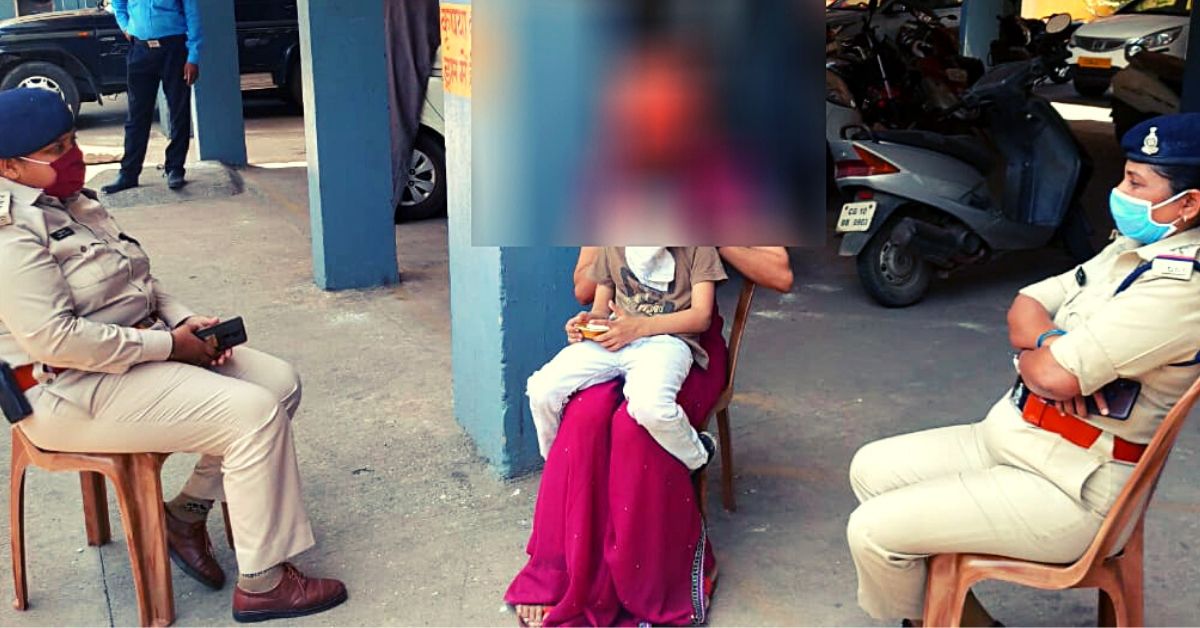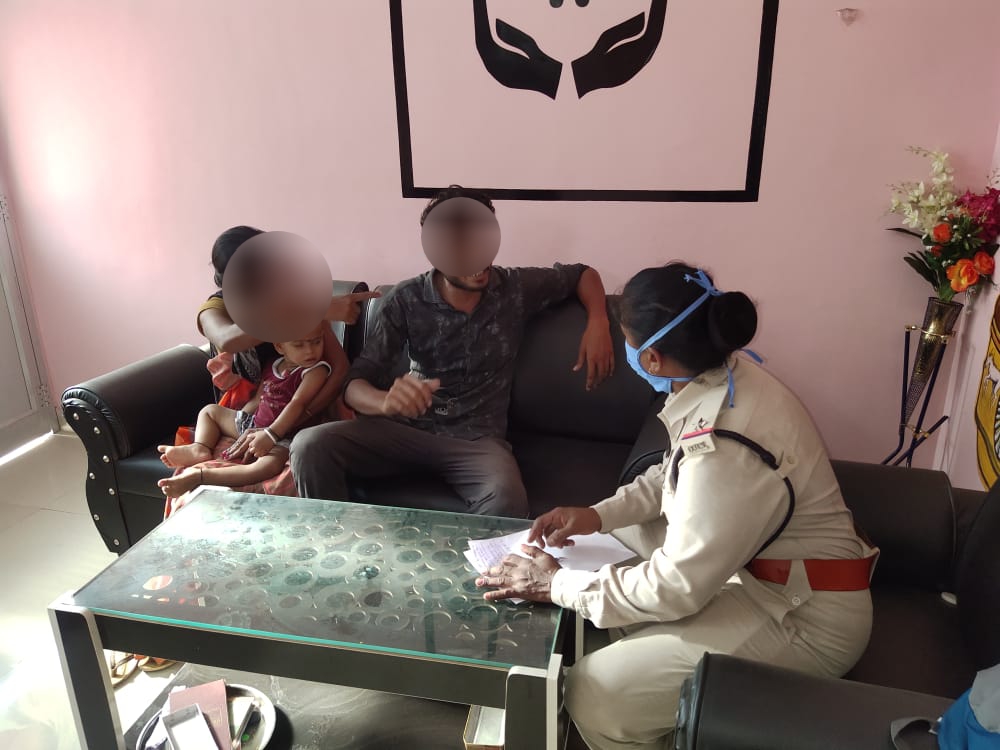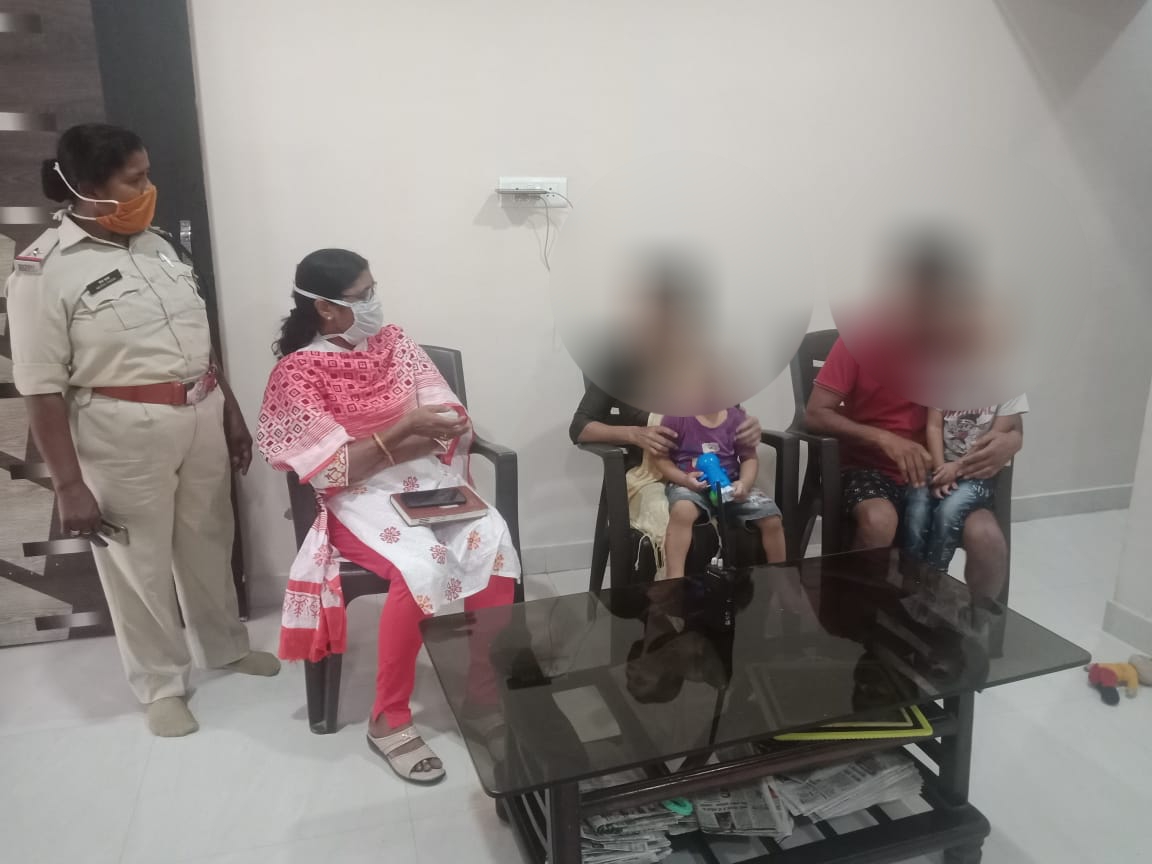IPS Officer’s ‘Chuppi Todd’ Campaign Protects 100s of Women From Domestic Violence
IPS Arif Shaikh shows how a small intervention can make a difference in the lives of those suffering from abuse at home amid the lockdown.

Jaya (name changed) from Raipur made several attempts to draw her neighbour’s attention towards her abusive husband. While beating was not a new phenomenon, the lockdown limited her options to get help.
Earlier, she would walk out of her small shanty in the slum or at least visit her relatives for a few hours. But because of social distancing protocols, no help came forward.
This is a story common for thousands of households across India, where a woman is forced to stay at home with her abuser so that she is ‘safe’ from coronavirus. Ironical, isn’t it?
But, what about domestic violence, the silent epidemic that has amplified since the lockdown due to reasons like loss of livelihoods and closure of liquor shops?
With the high risk of transmission of a deadly virus, how would a woman approach a police station or seek medical help in case of an assault or mental trauma when she is obligated by the state and public health guidelines to stay at home with her abuser?
No doubt, the victims can take help through the government helpline services and NGOs, but are these enough to stop the abuse at a time when stepping outside is a threat in itself?
When IPS Arif Shaikh, Senior Superintendent of Police (SSP), Raipur was faced with such hard-hitting questions in March, he immediately chalked out a comprehensive strategy to address domestic violence without the need for the victim to visit a police station.
Under the ‘Chuppi Todd’ (Break the Silence) initiative, Shaikh has rolled out a WhatsApp number (94791-91250), where women can lodge complaints with the police and seek help.

Once the complaint is made, the police visit the victim’s house instead of calling her to the police station. The aim is to take preventive measures and action against the culprits instantly.
Take, for instance, the case of Jaya, who immediately called the police and reported her husband. After counselling, she was sent to her relative’s house.
The IPS officer has formed four on-field teams, each consisting of four women constables, and another team that receives complaints. Based on the urgency of the matter, the remotely operating team informs the on-field staff, who then visit the victim’s home.
“We had imposed a lockdown as early as 13 March, and within a few days, the women’s cell (181) got a barrage of calls reporting abuse at home. There was almost a 30 per cent rise in such calls, which was very shocking. After recording two gruesome incidents, we realised the gravity of the problem and the fact that it is a long-term issue. Within ten days, we rolled out a plan to tackle this,” Shaikh tells The Better India.
Citing reasons for an increase in crimes against women, Shaikh adds, “Loss of jobs has swelled anger and frustration among men and hitting their wives is a convenient and easy option to release the lockdown pressure. Additionally, forced abstinence from alcohol aggravates the problem. The systematic lockdown has shut all avenues for women.”
How ‘Chuppi Todd’ Works

To spread awareness and sensitise people about the movement, the police team used social media and rolled out a toll-free number.
Within the first ten days, nearly a hundred women reported violence over the phone, and action was taken immediately through counselling or registering official complaints.
Next, they unearthed all 1,500 cases of domestic violence registered in the last three years.
“Many women do not have access to phones or are scared to ask for help. In such cases, they continue to suffer. Thus, we compiled a database of previous years and started calling such women to inquire about their safety and health,” explains Shaikh.
Despite making several calls every day, many women were hesitant. With male members around them all the time, they were afraid to explain the atrocities freely.
This was solved by preparing a questionnaire of eleven close-ended questions. The police officer visiting the victim pretended to be a doctor and conducted their inquiry.
“We begin the call by verifying the women’s identity. Then we tell them that if they cannot speak due to whatever reason, then they can tell their family members that this is a coronavirus-related survey. Once they fully understand our intention, we proceeded with the rest of the questions,” Kavita Thakur, DSP, Raipur tells The Better India.
Some of the questions were: Are you fine, Do you need help from the police, Is your husband or any other family member harming you, Is your husband drinking and so on.
Depending on the severity of the issue, action is taken. In most cases, counselling is provided via call or at the victim’s house. However, six FIRs have also been registered. Meanwhile, preventive action was taken in six cases.
Impact
“A total of 2,000 cases (500 new ones) that the Raipur police force has tackled under this initiative. The force makes several calls daily, including the follow-up calls, to ensure the woman is not suffering even after counselling,” shares Thakur.
The team has also got complaints from male members who are subjected to abuse at home. Of the total 40 complaints, half were authentic.
The social media awareness and circulation of phone numbers even saw the elderly reporting abuse.
Calls regarding abuse even poured in from Gujarat, Rajasthan, and Uttar Pradesh. In such cases, the police reached out and handed over the case details to the concerned district officials.
As per the National Commission for Women (NCW)’s data, there was a two-fold increase in gender-based violence across India in March.
While the socio-economic condition is not a factor for domestic violence, women from poorer backgrounds have limited resources to seek help.
When the world is reeling under a crisis, it is imperative to reach out to the helpless, especially women, who are subjected to abuse in their houses.
So, call your relative, friend, sister, domestic help, neighbour or colleague, and ask if they need any help. A simple intervention from your side can make a difference in the lives of those suffering from abuse amid the lockdown.
If you want to report abuse or help anyone, make a call to these helpline numbers.
(Edited by Shruti Singhal)
Like this story? Or have something to share?
Write to us: [email protected]
Connect with us on Facebook and Twitter.
If you found our stories insightful, informative, or even just enjoyable, we invite you to consider making a voluntary payment to support the work we do at The Better India. Your contribution helps us continue producing quality content that educates, inspires, and drives positive change.
Choose one of the payment options below for your contribution-
By paying for the stories you value, you directly contribute to sustaining our efforts focused on making a difference in the world. Together, let’s ensure that impactful stories continue to be told and shared, enriching lives and communities alike.
Thank you for your support. Here are some frequently asked questions you might find helpful to know why you are contributing?


This story made me
-
97
-
121
-
89
-
167













